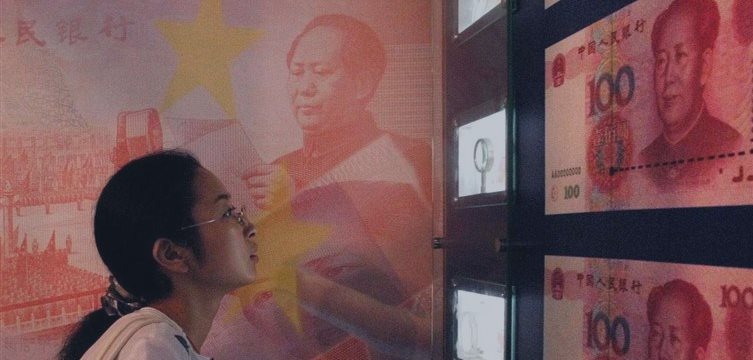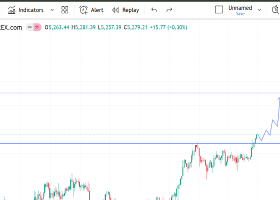In a new report, Bank of America Merrill Lynch Global Research warned that it sees a “non-negligible” risk that China’s government will surprise the market by slashing the value of its currency.
Appraisal of
China’s economic numbers is not enough to reach this conclusion, but you should take into account
that Beijing might actually lose control of the situation, says MarketWatch.
The thing is that this year brought steadily
worsening data and seemingly ineffective stimulus for China's economy. While also suffering
shrinking exports, the economy edged closer to outright deflation in
January after the consumer price index fell to a five-year low inflation
rate of 0.8%.
Beijing’s traditional measures to underpin the economy no longer appear to be working.
Despite
cuts in interest rates and bank-reserve requirements, as well as bank
lending surging to five-and-a-half year highs in January, authorities
are struggling to stop liquidity hampering.
It was revealed on Friday that broad M2 money supply had grown just 10.8% in January from a year earlier, the slowest rate of growth since records began in 1998.
It looks like efforts to add liquidity are wasted in the face of persistent capital outflows and existing high debt levels. Meanwhile, fiscal policy is limited due to restraints on local-government debt levels.
Loss of control
As a conclusion, Merill Lynch supposes that yuan depreciation is one of the few tools left for China to ensure it gets a good share of global demand and meets its growth and jobs targets. The devaluation scenario comes from the possibility Chinese policy makers may lose control of the situation.
Although this might sound unlikely, given Beijing’s firm control over the economy and financial markets, Bank of America considers the state’s iron rule may contain the seeds of such an unexpected policy reversal.
China might look stable on the surface when you consider its
consistently high growth rates, but limited bad-debt levels and a pegged
currency and capital controls, the instability comes from leaving no
means to release tension. The implicit backing of debt by the state
means this has obscured normal price and risk discovery, says MarketWatch columnist.
Thus, when everyday volatility is suppressed, this can lead to hidden, unobservable risks which can unravel violently and without warning.
Consequences of yuan depreciation
If the yuan were to depreciate steeply, this would be a major escalation in the global currency wars, given how big China’s economy is. Analysts say the ripple effects could be substantial, with many carry trades unwinding, commodity prices falling further and hot-money outflows accelerating. This could also have negative impact on property prices and lead to higher interest rates and a surge in bad debts.
Hong Kong would also feel the
fallout as it has witnessed an unprecedented surge of carry-trade
lending into mainland China in recent years. This has seen exposure rise
from 20% of Hong Kong GDP in 2006 to 160%.
Currency depreciation is unlikely to lift equity indices, as typical beneficiaries of yuan devaluation are lightly represented in the stock market.
There is still room, however, to position for likely winners and losers in case of yuan move. Banks, property, commodities and companies with heavy foreign debt would be hurt, but exporters such as telecom-equipment manufacturers and industrials would benefit. Companies less exposed to foreign competition, such as dairy producers, should be relatively immune.
On a broader basis, multinationals with costs rather than revenues in China will be better positioned for a yuan fall.



